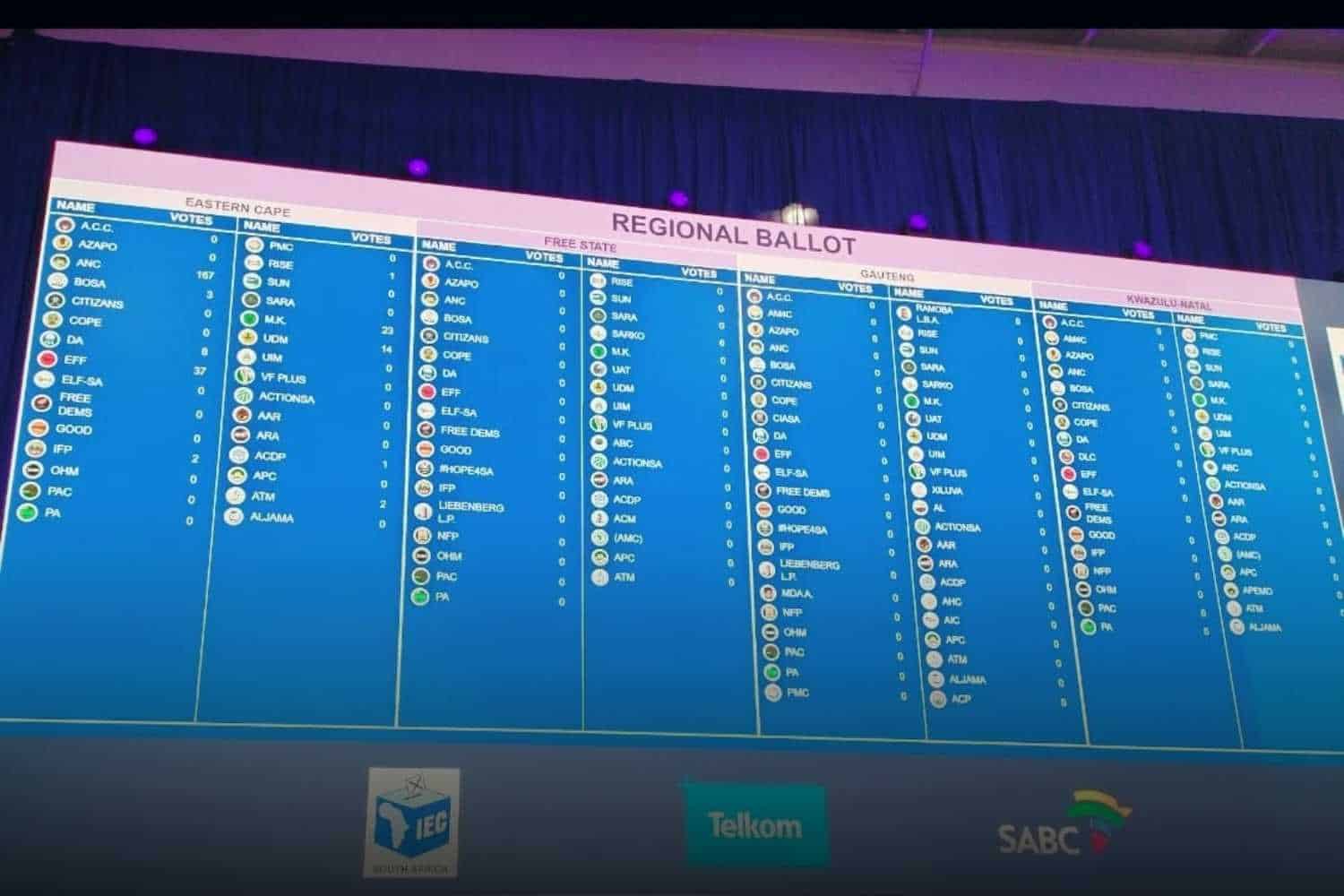Follow the latest updates on the 2024 South African election results as they unfold on Saturday, 1 June 2024.
2024 SA election results: Here are the live updates
NOTICE: Please allow time for the live blogging widget to load.
Latest election results: 96.96% Complete
| Party | Votes | Support | Seats |
|---|---|---|---|
| ANC | 6,121,354 | 40.16% | 0 |
| DA | 3,307,258 | 21.7% | 0 |
| M.K. | 2,256,863 | 14.81% | 0 |
| EFF | 1,427,459 | 9.37% | 0 |
| IFP | 604,193 | 3.96% | 0 |
| PA | 310,081 | 2.03% | 0 |
| VF PLUS | 207,260 | 1.36% | 0 |
| ACTIONSA | 175,931 | 1.15% | 0 |
| ACDP | 90,582 | 0.59% | 0 |
| UDM | 74,790 | 0.49% | 0 |
Here are the live updates:
Everything you must know about the election results
The 2024 South African elections mark a critical juncture in the country’s political landscape. With voter discontent rising and political alliances shifting, the outcomes of these elections could bring significant changes.
Key Points:
- Implications for the ANC: The African National Congress (ANC), South Africa’s ruling party since the end of apartheid, faces a significant challenge. Public dissatisfaction with the ANC’s performance, particularly regarding corruption, unemployment, and poor service delivery, has fueled calls for change. Analysts suggest the ANC might lose its parliamentary majority, leading to a potential coalition government.
- Rise of New Political Parties: The emergence of new political entities like the uMkhonto weSizwe (MK) party, backed by former President Jacob Zuma, and the RISE Mzansi party, indicates a shifting political dynamic. These parties aim to capitalize on voter dissatisfaction with the ANC and other established parties.
- Independent Candidates: For the first time, independent candidates are contesting in national and provincial elections. This change, brought about by the Electoral Amendment Act, allows individuals to vie for regional seats in the National Assembly, potentially altering the balance of power in South African politics.
- Voter Sentiment: Surveys indicate that many South Africans are disillusioned with the current state of democracy. High levels of unemployment, especially among youth, and ongoing issues such as corruption and inadequate public services are key concerns. This discontent could significantly influence voter turnout and election results.
- Economic and Social Issues: The economy is a central issue for voters. South Africa’s leading economy faces challenges like energy shortages, corruption, and inequality. The outcome of the elections will likely impact the country’s approach to these issues, with potential changes in economic policies and governance structures.
- International Relations: The elections could also affect South Africa’s foreign policy. The ANC’s longstanding relationships with countries like China and Russia, and its stance on international issues such as the conflict in Gaza, may be reevaluated depending on the election results.
